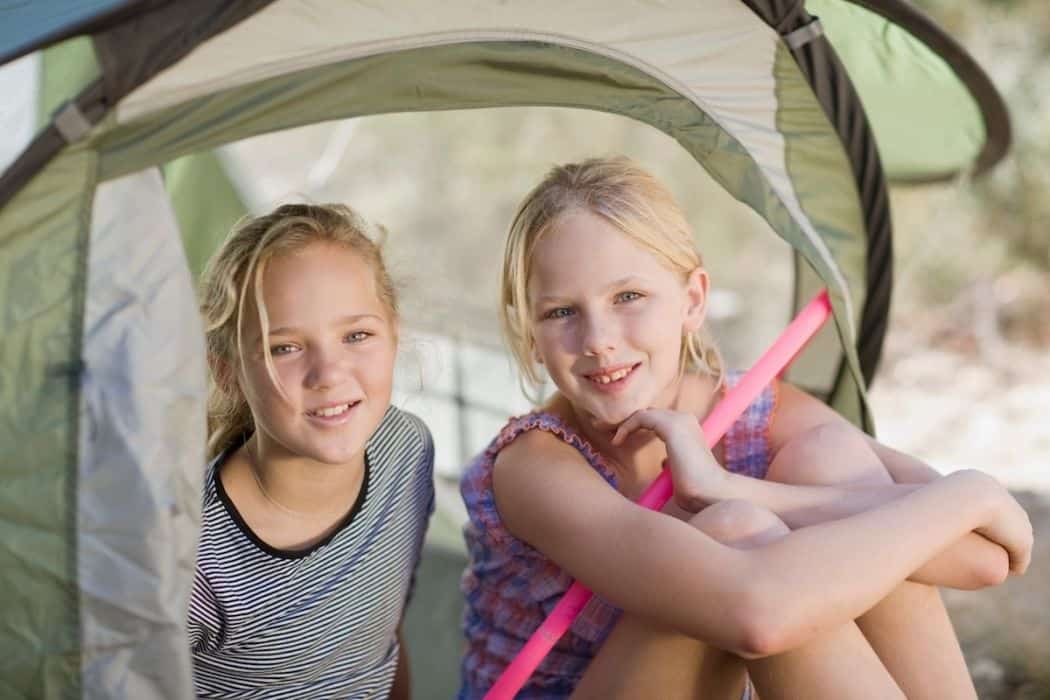Have you been wanting to go camping, but don’t quite know how your child will react by sleeping outside all weekend? Instead of packing up the car, driving hours to a great campsite, and having a screaming child who doesn’t want to sleep in a tent, why not try camping in your backyard first? You probably have so many questions, but is it safe to camp in my backyard?
Camping in your backyard is safe as long as you take a few precautions. Checking the weather is one such measure. Then also knowing your neighborhood and neighbors is another. Taking simple precautions will ensure your safety when camping in your backyard.
9. Know Your Neighborhood
Knowing your neighborhood is crucial to having a good time while camping in your backyard. If you live in a high-crime area, it might be safer to camp in your backyard during the day, but spend the night inside.
This is something only you can make the decision for. If you don’t think your neighborhood is safe to camp in at night, maybe try going to a friend’s place, or ask your family to try backyard camping.
Even if you feel completely safe, make sure you keep your cell phone with you just in case of emergencies.
8. Check the Weather
Nothing ruins a camping trip more than rain. Sitting under a tarp all day, sleeping in a puddle, and packing up your gear while it’s raining isn’t fun for anyone.
Besides rain, which can be manageable if you’re prepared, there are a few extreme weather conditions that should make you postpone your back yard camping.
Conditions such as thunderstorms, strong winds, and tornadoes are something you should watch out for before you pitch a tent in your backyard.
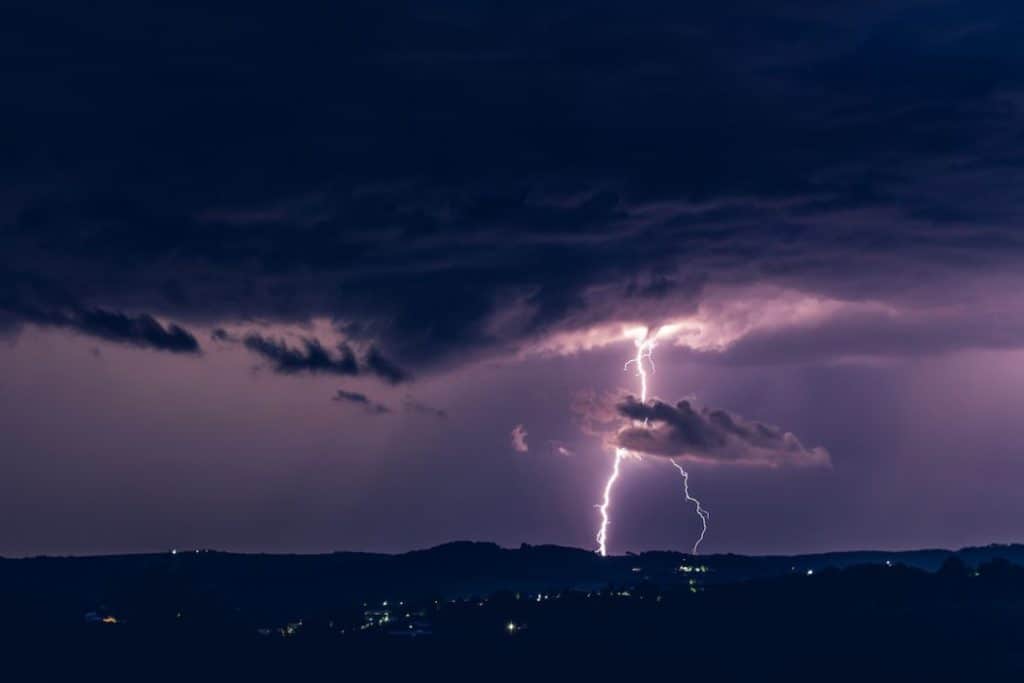
7. Watch for Wildlife
There are so many different animals you can encounter while camping in your backyard depending on where you live, and when it comes to wildlife, you should adopt a “look but don’t touch” policy.
You might get lucky and have a few adventurous chipmunks or squirrels wander close to your chairs to see what’s going on, but you should always be alert for snakes, coyotes, mountain lions, and bears!
6. Fire Safety
Before you even start a fire, please check with your local fire department to see if there are any fire restrictions or fire bans!
If you’ve got the green light for a back yard camp fire, you’re in for a night of hotdogs, marshmallows, and all the smores you can stomach.
At the end of the night, make sure you have a way to fully extinguish your fire. If you have a hose nearby, use it to completely douse the fire before you go to sleep.
If you don’t yet know how to extinguish a fire, that’s okay! Everyone has to learn at some point. Check out this website that walks you through it step by step.
5. Bugs
Pesky mosquitos are everywhere, and they are quite a nuisance. Not only do they leave extremely itchy bites all over you, then can also be a carrier for West Nile disease.
It’s rare, but why risk it? Protect yourself with bugspray or mosquito netting to keep the pests off of you.
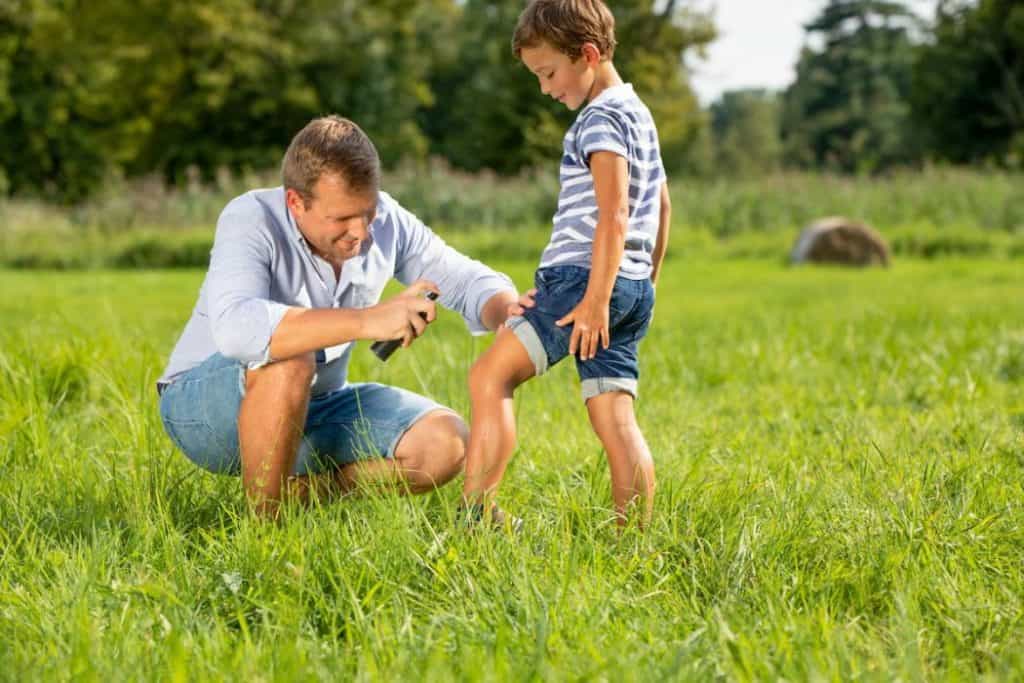
It’s not just mosquitos you need to watch out for; there’s ticks and wasps too. As long as you’re careful and try not to walk in tall-grass areas, you should be okay.
If you’re being precautious, you can keep benedryl in the house for wasp stings, and make sure you have an epipen nearby if you have an allergic reaction.
4. Keep Your Phone Available
This isn’t to say you should sit there and play games or scroll through social media all weekend. Keep your phone nearby and charged just in case anything bad happens.
Just-in-case scenarios are the worst, but it is very easy to keep your phone near you to call 9-1-1, or call friends and family to come get you if anything happens.
If you don’t need to use your phone, which you probably won’t, use your time to take pictures of the memories you’re making.
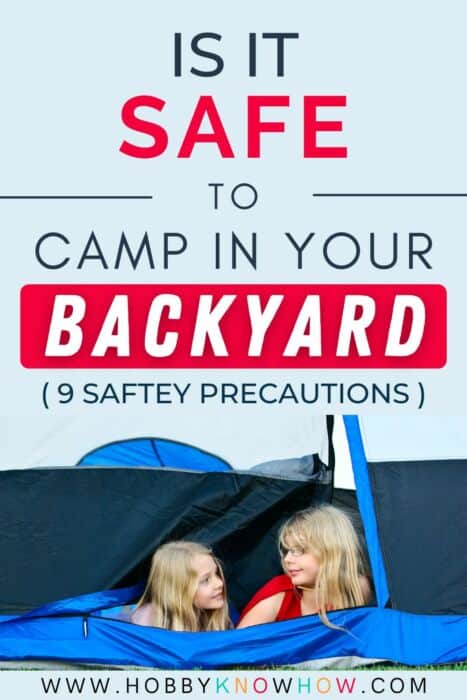
3. Leave the Weapons at Home
While it may seem like a great idea to shoot some cans in the back yard, or try your hand at whittling, your backyard might not be the place to try this.
This applies to camping with young children more than it does other adults, as kids don’t often know better and they can very easily pick up a gun or a knife and not handle it properly.
2. Backyard Layout
If you’re house backs onto a cliff by the ocean, you have a gorgeous property. Unfortunately, something like this leads to additional hazards that you need to watch out for.
Cliffs, rocks, water, even fallen trees and above-ground roots are something you need to be careful around.
The risks here aren’t huge. You’re used to your backyard, and you’ve likely taught your children to be careful in those areas too.
In the dark though, you might not be aware of where the safe boundaries of your back yard are, which brings us to the last point…
1. Lights
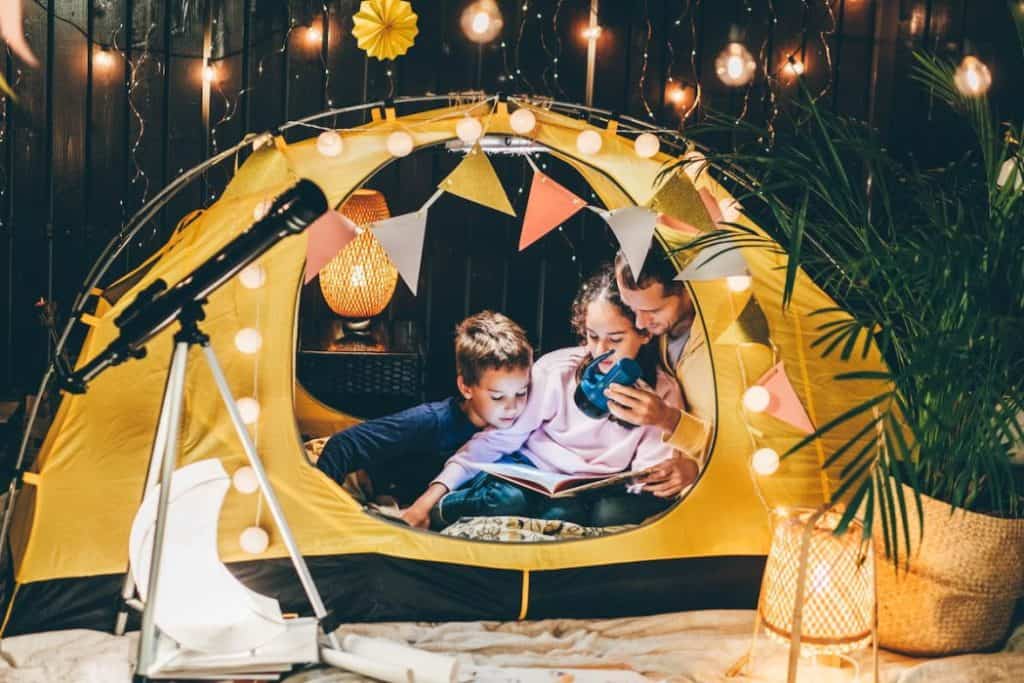
If you’re camping in your backyard, you should add some lighting. Any of the following can significantly improve your camping experience
Motion detecting lights: While camping in your backyard, it is a very easy way to be alerted if any animals approaches, or if a child starts to wander where they shouldn’t.
Nightlights: If you’re camping with young kids, it can be really startling to wake up somewhere you aren’t used to. By putting a nightlight in the tent with kids, they don’t need to fall asleep or wake up in complete darkness, and it can help them realize where they are.
Flashlights: This is a common item while camping normally, but having a flashlight will help you avoid tripping over tree roots on your way into the house to go to the bathroom.
Even if you have a completely flat back yard, and you don’t think you’ll need the bathroom in the middle of the night, a flashlight can help you find the marshmallow roasting stick that you can;t find in the dark.
Check out our best camping flash light guide here
Wrapping It Up
Camping in your backyard will be what you make of it. It can be an extremely fun, memory-lasting experience for you and your family if you are properly prepared.
Checking the weather, having a charged phone, keeping some lights around, and being careful of your surroundings will help you have an enjoyable time with your friends and family.

